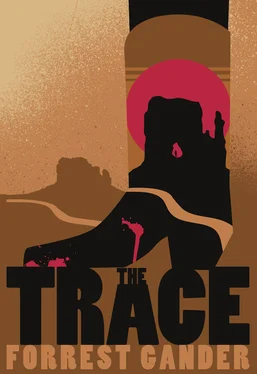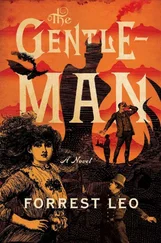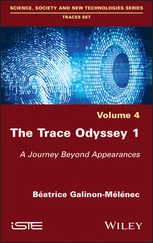Forrest Gander - The Trace
Здесь есть возможность читать онлайн «Forrest Gander - The Trace» весь текст электронной книги совершенно бесплатно (целиком полную версию без сокращений). В некоторых случаях можно слушать аудио, скачать через торрент в формате fb2 и присутствует краткое содержание. Год выпуска: 2014, Издательство: New Directions, Жанр: Современная проза, на английском языке. Описание произведения, (предисловие) а так же отзывы посетителей доступны на портале библиотеки ЛибКат.
- Название:The Trace
- Автор:
- Издательство:New Directions
- Жанр:
- Год:2014
- ISBN:нет данных
- Рейтинг книги:3 / 5. Голосов: 1
-
Избранное:Добавить в избранное
- Отзывы:
-
Ваша оценка:
- 60
- 1
- 2
- 3
- 4
- 5
The Trace: краткое содержание, описание и аннотация
Предлагаем к чтению аннотацию, описание, краткое содержание или предисловие (зависит от того, что написал сам автор книги «The Trace»). Если вы не нашли необходимую информацию о книге — напишите в комментариях, мы постараемся отыскать её.
The Trace — читать онлайн бесплатно полную книгу (весь текст) целиком
Ниже представлен текст книги, разбитый по страницам. Система сохранения места последней прочитанной страницы, позволяет с удобством читать онлайн бесплатно книгу «The Trace», без необходимости каждый раз заново искать на чём Вы остановились. Поставьте закладку, и сможете в любой момент перейти на страницу, на которой закончили чтение.
Интервал:
Закладка:
One other couple was seated inside, eating at the table closest to the door, where any rumor of a breeze might be picked up. They had clear plastic cups half full of an orange drink. As the woman put her fork down, it tinked against her plate. Hoa wondered if she had been fighting with her husband. Her face was round but pinched at the eyes, and she stared distrustfully at Hoa across the table as though Hoa had entered with no intention but to spread a disease. Her husband was plying his fork in little circles over his empty plate.
Dale came in behind her, nodding at the couple, as Hoa pulled back a chair at a table beneath a small, high, missing-cinderblock window. Neither she nor Dale had taken into account the table’s proximity to the mounted speaker on the wall. There was a pause between songs when they entered and as soon as they were settled at the white plastic table, the speaker began blasting corridos into the small room.
A round unsmiling woman in a brown apron — her hair pulled back and knotted in a tight ball — stepped from the back-room kitchen and greeted them. There were no menus. The choices? There were no choices. The barbecue was carne de res. It came with rice, beans, and corn tortillas. They asked for Cokes, and the woman nodded, starting toward the kitchen.
“Perdón, señora,” Dale called. The woman took two steps back to the table and leaned toward them with her ear.
“Qué es eso?” he asked. “Detrás de la música. Esa screek, screek, screek, screek .”
The woman came a few steps closer. She looked up at the speaker mounted near the small window and listened. For that brief moment, in the soft mix of artificial and evening light, she reminded Dale of a painting. Across the table from him, Hoa was listening too, her eyes following those of the woman toward the opening in the cinderblock wall. There was a strange electronic wail behind the beat of the corrido. Repetitive. At first it sounded like a scratch in the recording, but then it would pause or adjust its tempo.
“Es un sapo de bolsa,” the waitress said, her face serious.
“¿Como?”
“Un sapo de bolsa,” she iterated in a certain, matter-of-fact tone.
“Gracias,” Dale replied.
“A what?” Hoa asked.
“A toad with a sack.” Dale stood up to better see through the opening. The couple at the other table was staring at him, and he sat down again.
“I guess there’s lots of species of toads in the desert,” Hoa was thinking aloud. “This little guy must be just outside the window hole. I wonder if he thinks he’s competing with the corridos for his girlfriend.”
She was concentrating, cueing in its song, if that’s what you’d call it. Screek screek screek screek.
“Athletic sucker isn’t it?” Dale reached into his pants pocket. “If he’s competing with the corrido, he’s going to die exhausted and unfucked.”
He glanced at the couple at the other table, hoping they hadn’t overheard him.
“If I don’t eat soon, so will I,” Hoa said. “Die exhausted.”
Dale was pulling his phone from his cargo pants pocket. He quickly looked up for her eyes, but she had twisted in her chair toward the kitchen to cross her legs.
“I’ll try not to let that happen,” he said. “Either of those things.”
“Let’s see the photos of Bierce’s grave,” she said.
“Cenotaph,” he said, lowering his voice, the furrow deepening in his brow. “Bierce’s body isn’t there.”
Hoa leaned her elbows on the table without moving her chair forward. In her awareness, the music shifted to background and what she heard instead was the toad wailing. She wasn’t sure she was capable of feeling normal or of carrying on naturally with Dale while some gulf separated them from their child. On Dale’s phone on the table, she could make out a good shot of the entrance to the cemetery, the rocky parking area, the knee-high adobe wall, and the sweeping, smooth brown skirt of the mountain.
Dale held his hand out so she could see better and he scrolled to the next image, a close up of the plaque on Bierce’s cenotaph.
“Testigos,” Hoa was remembering. The script in the photo was too small to read. “Testigos muy confiables. . how does it go?”
Dale zoomed in and read it for her. “Testigos muy confiables suponen. Que aquí yacen los restos. . Very reliable witnesses believe that here lie the remains of Ambrose Gwinnett Bierce, 1842–1914, famous writer and American journalist, who, suspected of being a spy, was shot and buried in this place.”
“Right. But no eyewitnesses?”
The dueña brought out two clear plastic cups filled with ice and orange Fanta, not Coke.
“Oh,” said Hoa, adjusting. “I forgot to ask for no ice.” She glanced at the dueña and saw that she understood, and then Hoa regretted saying anything.
Dale picked up his cup. “The ice is good here,” he said. “To Ambrose.”
Hoa picked up her plastic cup and ticked it against his.
Dale took a sip to complete the ceremony, setting the cup on the table, and said, “I’m going to wash my hands.”
The dueña was attending to the other table. Talking conspiratorially with the couple.
“Los servicios?” Dale asked to be polite, but he knew they could only be in one direction.
The dueña looked at him blankly.
“El baño?” He was never quite sure which word to use. He could hear the motor of the refrigerator in the kitchen, and he could smell beans and fried meat.
Through the arch, she indicated with her hand. “A la izquierda,” she said.
He opened the door and turned on the wall switch just in time to see a mouse run straight up the concrete wall and disappear into a crack at the ceiling. Impressive. It hadn’t climbed, it had raced up the wall. Dale stepped toward the toilet. The wall was ordinary concrete, no more rough than what you’d see anywhere. And the mouse had left a little trail of brown urine marking its ascent.
There was just enough room for a toilet, a sink, and a wastebasket. On the wall behind the sink, instead of a mirror, there was a framed print of the Last Supper. Dale lifted the toilet seat with the toe of his boot, but the seat wouldn’t stay. He was compelled to keep his left boot up against the stained underside of the seat while he urinated. Still holding the seat back with his toe, he bent to tear off a piece of toilet paper, wiped himself and the rim, then dropped the paper in the bowl. He turned on the faucet and rinsed his hands and face under tepid yellow water. He pumped the lever of a paper dispenser three quick times and it wheezed like a bulldog, but no paper came out. He pulled his shirt up to his face. When he returned to the table, wiping his hands against the thighs of his cargo pants, he saw that the other couple had gone. Hoa was squeezing lens drops into her eyes.
“How do you feel?” she asked, inspecting his mouth for any signs of damage she may have inflicted.
“I’m okay,” he said, wanting to turn the conversation away from the incident at lunchtime and the way it had swallowed the rest of the afternoon. “The lowest point today was remembering it’s Father’s Day this weekend.”
She’d forgotten. It was Wednesday evening, and Father’s Day would be Sunday. She gave him space to continue.
“I remember last year. The hours going by and he didn’t call.”
Entre Chien et Loup
When they walked out of the bodegón, Hoa paused on the sidewalk, checking out the empty street, taking it in.
“It’s the hour entre chien et le loup ,” she remembered. “Do the Mexicans have an expression like that?”
“Don’t know.”
A mockingbird, staying up late, carried on a risible argument with itself in different voices. What was it the Mexicans called them? Dale wondered.
Читать дальшеИнтервал:
Закладка:
Похожие книги на «The Trace»
Представляем Вашему вниманию похожие книги на «The Trace» списком для выбора. Мы отобрали схожую по названию и смыслу литературу в надежде предоставить читателям больше вариантов отыскать новые, интересные, ещё непрочитанные произведения.
Обсуждение, отзывы о книге «The Trace» и просто собственные мнения читателей. Оставьте ваши комментарии, напишите, что Вы думаете о произведении, его смысле или главных героях. Укажите что конкретно понравилось, а что нет, и почему Вы так считаете.












